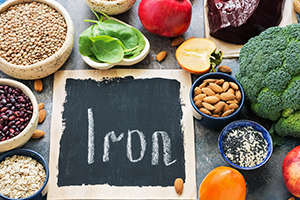

Did you know that vitamins for bones, if taken from an early age (as early as the late 20s), can play a significant role in maintaining bone health in the long run? Vitamins play a significant role in your bones development. The structure of our bones and their density are largely determined by the kind of vitamins and minerals we consume while growing up.
Our bones not only shape our body but they also promote the production of red blood cells, protect the vital organs inside our body, and store important minerals [calcium and phosphorus] so that the human body can function properly. Therefore, our bone health is extremely important in determining our overall health and immunity. If you are concerned about your bone health, you must understand the important role vitamins for bones play.
However, bone health often gets neglected and never really gets the deserved attention. Usually, we’re only concerned when we develop low bone mineral density or deal with joint pains and aches. Some of us also wait until we enter old age and realise how maintaining bone health becomes a necessity. In this article, we will take a look at the vitamins for bones and muscles that affect our overall health.
Top Vitamins for Bones and Muscle Health
There are several vitamins for bone health that influence your bone structure. Vitamins for strong bones and joints, in general, are essential because they impact your muscles and the body’s overall functions.
Weaker bones and compromised joints are bound to stress the associated muscles. This leads to body pain, fatigue, cramps, stiffness, bad posture, and even fractures. To ensure your bones, joints, and muscles remain in good health, here are the top 4 vitamins for bones and muscles that you need to include more in your diet:
1. Vitamin D
As long as vitamins for bones are concerned, vitamin D comes first in the list and rightly so. Vitamin D for bones plays a significant role in enabling adequate calcium absorption in the body. Calcium, in turn, is an important mineral required for stronger bones, teeth, and joints besides the normal functioning of several bodily processes.
Several studies, therefore, talk about the importance of vitamins for bones with focus on Vitamin D for teeth in addition to bones.
Unlike calcium and other vitamins, vitamin D is a bit harder to get from our everyday diet. The major source of vitamin D is sunlight. When we expose ourselves to the sun, our skin produces Vitamin D.
If you are Vitamin D deficient and also have minimal sun exposure, consider taking vitamin D supplements to ensure proper calcium absorption. Poor vitamin D levels also lead to fatigue, muscle pain, cramps, poor digestion, etc. besides osteoporosis [low bone mineral density], osteoarthritis, and even fractures. This makes it one of the most essential vitamins for bones and teeth.
2. Vitamin K
Vitamin K is one of the lesser-known vitamins for strong bones and joints. However, that does not make it less important. Rather, it promotes bone development from a very initial stage in your life. Vitamin K helps in accumulating sufficient calcium in the bones.
Deficiency in vitamins for bones, especially Vitamin K deficiency, can increase fracture risks and lower the density of your bones. That is why besides Vitamin D, Vitamin K is counted amongst the most important vitamins for osteoporosis management.
If you want to increase your Vitamin K intake, consume more sprouts, broccoli, parsley, kale, olive oil, spinach, and other green vegetables. You can also take supplements for it but if you are on blood thinners, make sure not to start without a prescription.
3. Vitamin C
Most people associate Vitamin C with skincare, building immunity, and fighting infections. Very few know of its role as one of the best vitamins for strong bones and joints.
Did you know that Vitamin C promotes the production and formation of collagen inside your body, and is therefore included among the best vitamins for bones? Collagen is the organic matrix of bone which provides flexibility and strength. Those who suffer from vitamin C deficiency, are more likely to have relatively poorer bone health. The most common foods that you can consume to increase your intake of vitamin C are oranges, cauliflower, lemons, broccoli, several types of berries, papaya, limes, etc.
Vitamin C is one of the most powerful vitamins for bones that have a huge role in the overall growth of our bone structure.
4. Vitamin B12
Besides Vitamin K, Vitamin B12 is also among the most prominent vitamins for osteoporosis and its deficiency leads to loss of bone density. Several studies have shown how Vitamin B12 is associated with building bone cells and shaping bone structure, making it one of the essential vitamins for bones. In order to increase your intake of vitamin B12 on a daily basis, make sure you consume more milk, poultry, fish, dairy products, eggs, cereal, and shellfish. If you don’t get enough of this vitamin from good, go for supplements.
Those who do not consume dairy products, meat, and poultry are more likely to suffer from vitamin B12 deficiency and an overall deficiency in vitamins for bone health at a later stage in their lives. Vegans and vegetarians, therefore, tend to suffer from several diseases caused by vitamin B12 deficiency.
Conclusion
We have mentioned the major vitamins for bones, muscles, teeth, and overall growth of the body. Make sure you take a balanced diet with foods providing all the necessary calcium, fibre and best vitamins for bones for years to come. Include vitamin supplements if advised by your doctor and make sure you keep a track of your symptoms to diagnose and remedy vitamin deficiencies at an early stage.




